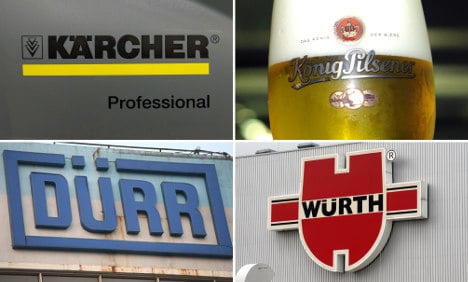The umlaut – Ä, Ö and Ü – which has the aural effect of adding an E after a letter, is proving problematic for German exporters, particularly in Asia.
It is disappearing from the names of the country’s export-dependent firms who fear that it is difficult for consumers to pronounce and is tricky for people to use in online searches.
The umlaut is used in the spelling of top German export brands such as Kärcher, Würth, Jägermeister and Löwenbräu.
But globalisation has already led some to drop their umlauts to make their names easier for those who don’t speak German to swallow. Re-insurance firm Münchener Rück calls itself Munich Re abroad, while Dürr, a world leader in car assembly plants, has changed its spelling to Durr.
Dürr spokesman Mathias Christen said the Ü had initially given the company a strong identity. But he said the umlaut could fall foul to the internet age with different spellings being used online. The website is durr.com rather than duerr.com.
Removing the umlaut also helps foreigners pronounce the name, according to Dürr’s head of human resources in Brazil, Alex Cruz.
“We know that abroad the umlaut is problematic,” said Sybille Kircher from marketing agency Nomen International in Düsseldorf. “Names need to be found quickly on the internet and need to be pronounced easily over the telephone.”
Jägermeister has had a similar debate in China over whether to drop the umlaut from its name. They decided to change the name to Ye Ge meaning “Wild Boy”.
Spokeswoman Astrid van Delden said: “The umlaut and its pronunciation is definitely an issue abroad. Most consumers don’t use the full name of the product.”
DPA/The Local/tsb




 Please whitelist us to continue reading.
Please whitelist us to continue reading.
Member comments